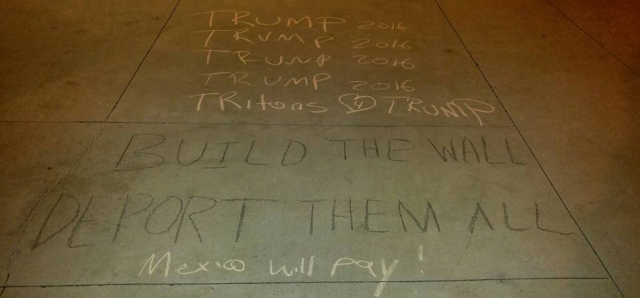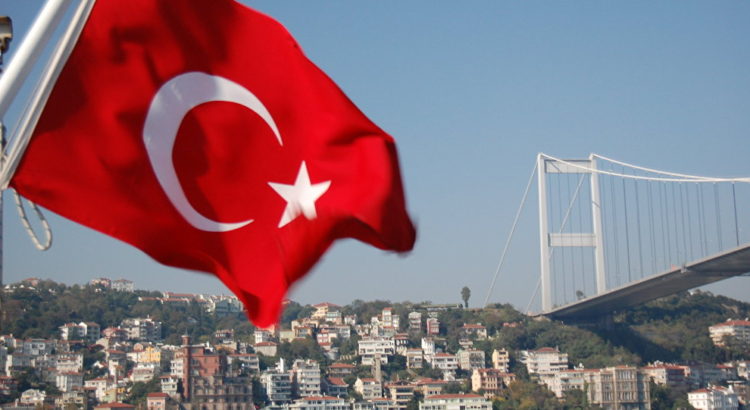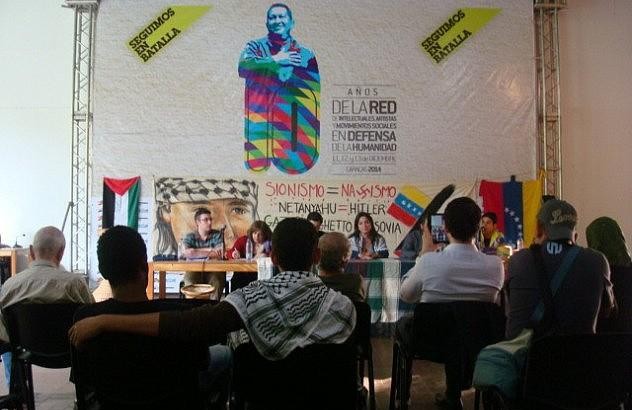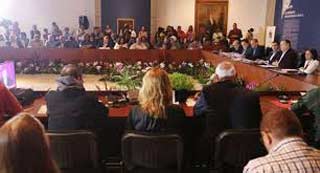InsideHigherEd/15 de de abril de, el año 2016/Por: Josh Logue
Resumen: En la Universidad de Emory los mensajes en contra de la candidatura de Trump el piso del campus son marcados con tiza en las aceras o en las paredes lo cual forma parte del debate nacional sobre la libertad de expresión y la protesta. Sin embargo, el debate ha transcendido al twitter donde ahora los jóvenes de decenas de escuelas, exhiben la fotografía del mensaje en tiza.
Campus messages chalked on walkways or walls are common year-round, and messages in support of one candidate or another are routine during election years. But Donald Trump’s candidacy for president isn’t routine at all — and chalkings invoking his name are setting off debates that outlast the visibility of the messages.
In March, students at Emory University touched off a national debate about free speech by protesting chalk messages on campus that said “Trump” or “Trump 2016.” The students said they had been hurt by the messages, administrators expressed empathy, and critics accused students of being too sensitive. The Emory incident has faded into the past, but a slew of new pro-Trump campus chalkings have taken its place.
On Twitter, the phenomenon is known as The Chalkening. On dozens of campuses it has spawned chalk messages saying, “Trump 2016” or “Make [insert college here] Great Again.” In some instances, the Trump messages are paired with much more inflammatory language, such as “deport them all” or “fuck Mexicans.”
College administrations have reacted in a variety of ways, often spurred by the reactions of students on campus. At the University of Connecticut, for example, nothing much happened. A spokesman there said he only learned about the chalkings from reporters asking about them. Elsewhere, universities have washed the messages away, left the messages but condemned them in statements, condemned offensive messages but not political activity, or stood staunchly behind students’ right to write even offensive messages in chalk.
The debate has also moved well beyond support of a particular political candidate. A fraternity at Tulane University erected a wall adorned with Trump slogans, which they say was intended to mock the candidate. Others have said that they «they built a wall filled with connotations of hate and ignorance, directly mocking the experiences of Latino immigrants and workers throughout our nation.» Another fake wall, this one intended not as a joke but to critique Trump’s proposed border wall, also stirred debate at John Carroll University and led to campuswide chalkings. That wall attracted the ire of Trump supporters, who threatened to tear it down.

University of Michigan
Pro-Trump chalking at the University of Michigan two weeks ago also featured the phrase “#StopIslam.”
The university left the messages alone, despite unhappy students, because chalk messages are permitted on campus and these did not constitute a direct threat, officials said. Campus police had been called, but they reported no criminal activity.
“We all understand that where speech is free it will sometimes wound,” the university said in a statement.
Students took it upon themselves to wash away the messages.
Students call police, wash off chalk messages on the Diag that read «Stop Islam» @michigandaily pic.twitter.com/JyjwGE3Brc
— Emma Kerr (@emmarkerr) March 31, 2016
In a joint letter to the campus, the university’s president, Mark S. Schlissel, and Central Student Government President Cooper Charlton said, «While we also recognize that messages — however hurtful — can be protected legally and under policies that include our freedom of speech and artistic expression, the anti-Islam messages were inconsistent with the university’s values of respect, civility and equality.»
«A university community must be free to explore ideas that some people will find offensive, even painful,» Schlissel wrote in an essay about the incident. «At the same time, universities must welcome a diversity of voices …. This real tension between core values deserves serious attention and thoughtful discussion. We are not getting there.»
DePaul University
DePaul’s facilities crew washed away pro-Trump chalkings that were organized by the DePaul College Republicans.
Thanks @DePaulU for limiting the free speech of all those who disagree with your agenda. Chalk is all washed away by this morning.
— Nicole Been (@Nicole_been) April 5, 2016
A spokeswoman for the university emphasized that contrary to some media reports, the university hadn’t banned all chalking in response to the incident. Rather, the vice president for student affairs cited in a letter the university’s 501(c)(3) nonprofit status obligation not to endorse political candidates. “In practice, [federal regulation] means no partisan political advertising may be conducted on campus that could in any way be attributed to DePaul University.”
Free speech advocacy groups like the Foundation for Individual Rights in Education have long argued that private colleges often interpret the prohibition against endorsing a candidate too conservatively and end up quashing student expression.
«Nice try but no cigar,» said Will Creeley, vice president of legal and public advocacy for FIRE. «You’re going to have to think of a better excuse for getting rid of it.»
«Colleges and universities that are tax exempt under 501(c)(3) can’t participate in campaigns as an institution,” Creeley said. “But nothing that students, faculty or campus groups do would endanger that status when it’s clearly separate from the university’s opinion.” He added, “I would imagine the university doesn’t usually disseminate its messages in chalk around campus.”
University of Tennessee at Chattanooga
Debate erupted here a week ago when a member of a student government coalition wrote “Trump 2016” in chalk on campus. Some, including members of the coalition, called for her resignation, though at least one later recanted.
The university noted in a statement that it played no role in the clash, and painted the incident as a teachable moment.
“We hope the students involved in this dispute resolve their differences and use this opportunity to learn important lessons about humility, effective communication, collaboration and leadership,” it said. “No student has been disciplined or chastised by the administration for his/her personal political beliefs.”
University of California at San Diego
Some of the most inflammatory messages appeared in several locations at the University of California at San Diego the night before Triton Day, when prospective students would be visiting the campus. They included “build the wall,” “deport them all,” “fuck Mexicans” and “Mexico will pay,” according to the UCSD College Democrats Facebook group (which posted photos). Alongside those were the familiar “Trump 2016” and “Tritons 4 Trump.”
The group said it was “deeply disturbed” by the “pro-Trump propaganda as well as violently racist and xenophobic quotes.”
The university managed to remove most of the statements before students arrived the next morning, according to USA Today. It’s unclear, however, whether it removed only the messages containing slurs and profanity or washed away the pro-Trump messages as well. The university did not respond to questions in calls and emails.
It did condemn the overtly offensive set of messages in a statement posted on its website: “Unfortunately, late Friday evening graffiti promoting the deportation of undocumented immigrants and the construction of a wall on the border of Mexico was discovered chalked on UC San Diego’s campus sidewalks. This graffiti runs counter to our campus values of equity and inclusion.”
StudentsEditorial Tags: Politics (national)Image Source: UCSD College DemocratsImage Caption: U of California at San Diego
Fuente: https://www.insidehighered.com/news/2016/04/15/pro-trump-chalkings-inflame-many-campuses



 En correspondencia con temas debatidos en esa cita, que se extenderá hasta el 14 de abril, el documento recoge la condena al decreto del presidente estadounidense, Barack Obama, firmado en 2015 y renovado este año, que atenta contra la soberanía del país suramericano.
En correspondencia con temas debatidos en esa cita, que se extenderá hasta el 14 de abril, el documento recoge la condena al decreto del presidente estadounidense, Barack Obama, firmado en 2015 y renovado este año, que atenta contra la soberanía del país suramericano.





 Users Today : 100
Users Today : 100 Total Users : 35459695
Total Users : 35459695 Views Today : 182
Views Today : 182 Total views : 3418154
Total views : 3418154